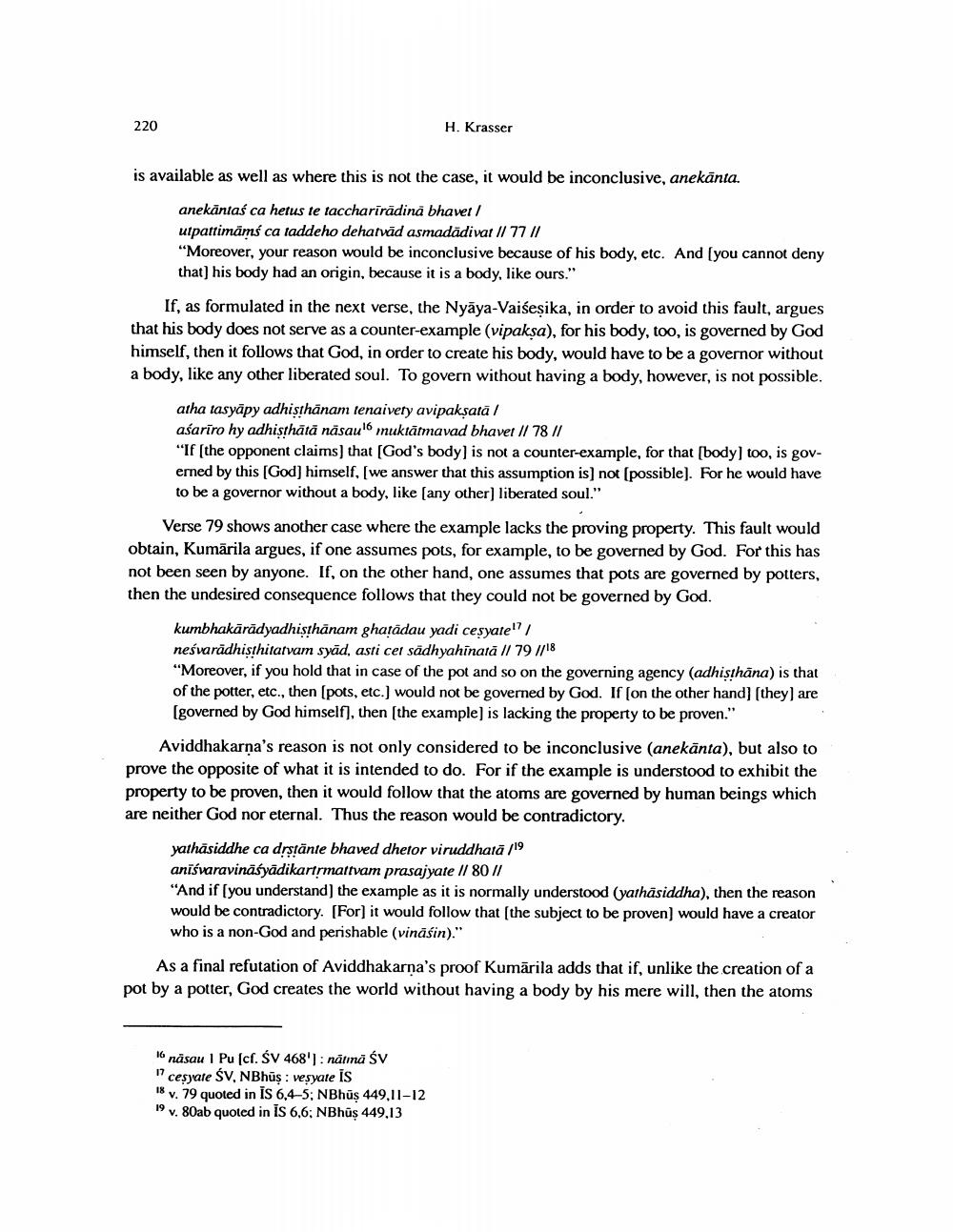Book Title: Dharmakirtis And Kumarilas Refutations Of Existence Of God Author(s): Helmut Krasser Publisher: Helmut Krasser View full book textPage 6
________________ 220 H. Krasser is available as well as where this is not the case, it would be inconclusive, anekānta. anekäntaś ca hetus te taccharirädina bhavet/ utpattimämś ca faddeho dehatväd asmadädivat // 77 11 "Moreover, your reason would be inconclusive because of his body, etc. And you cannot deny that) his body had an origin, because it is a body, like ours." If, as formulated in the next verse, the Nyāya-Vaiśesika, in order to avoid this fault, argues that his body does not serve as a counter-example (vipaksa), for his body, too, is governed by God himself, then it follows that God, in order to create his body, would have to be a governor without a body, like any other liberated soul. To govern without having a body, however, is not possible. atha tasyäpy adhisthānam tenaivety avipaksata / aśariro hy adhisthātā näsau' muktātmavad bhavet // 78 // "If (the opponent claims) that (God's body) is not a counter-example, for that (body) too, is governed by this (God) himself, [we answer that this assumption is not possible). For he would have to be a governor without a body, like any other) liberated soul." Verse 79 shows another case where the example lacks the proving property. This fault would obtain, Kumärila argues, if one assumes pots, for example, to be governed by God. For this has not been seen by anyone. If, on the other hand, one assumes that pots are governed by potters, then the undesired consequence follows that they could not be governed by God. kumbhakärädyadhisthānam ghatadau yadi cesyate'? / nesvaradhisthitatvam syād, asti cer sädhyahinatā // 79 //18 "Moreover, if you hold that in case of the pot and so on the governing agency (adhisthana) is that of the potter, etc., then (pots, etc.) would not be governed by God. If (on the other hand] (they are (governed by God himself), then the example) is lacking the property to be proven." Aviddhakarna's reason is not only considered to be inconclusive (anekānta), but also to prove the opposite of what it is intended to do. For if the example is understood to exhibit the property to be proven, then it would follow that the atoms are governed by human beings which are neither God nor eternal. Thus the reason would be contradictory. yathāsiddhe ca drstänte bhaved dhetor viruddhatā /19 aniśvaravināsyādikartrmattvam prasajyate // 80 11 "And if you understand) the example as it is normally understood (yarhäsiddha), then the reason would be contradictory. (For) it would follow that the subject to be proven) would have a creator who is a non-God and perishable (vināśin)." As a final refutation of Aviddhakarna's proof Kumārila adds that if, unlike the creation of a pot by a potter, God creates the world without having a body by his mere will, then the atoms 16 näsau 1 Pu (cf. ŚV 468'): nătmă ŚV "cesyate ŚV. NBhūş: vesyate is 18 v. 79 quoted in is 6,4-5; NBhūs 449,11-12 19 v. 80ab quoted in is 6,6; NBhū$ 449,13Page Navigation
1 ... 4 5 6 7 8 9
